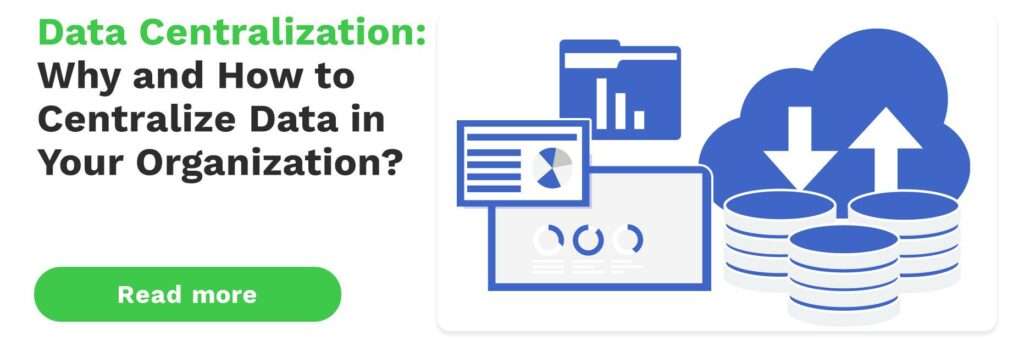ERP vs. CRM: What is the difference and which is better for your company?
Enterprise Resource Planning (ERP) focuses on streamlining and optimizing an organization's internal processes and data, while Customer Relationship Management (CRM) primarily centers on managing and improving interactions with customers and external relationships.
What is ERP?
Enterprise Resource Planning (ERP) is a suite of software applications that work together to provide an all-in-one solution for managing a business. It can be customized to suit the specific needs of a company and includes modules for accounting, human resources, sales, inventory management, and more. The shared database feature of ERP allows all departments to access updated information, minimizing the redundancy of data and providing standardized processes and reporting. ERP streamlines operations and creates automated workflows by unifying business processes within a single technology platform.
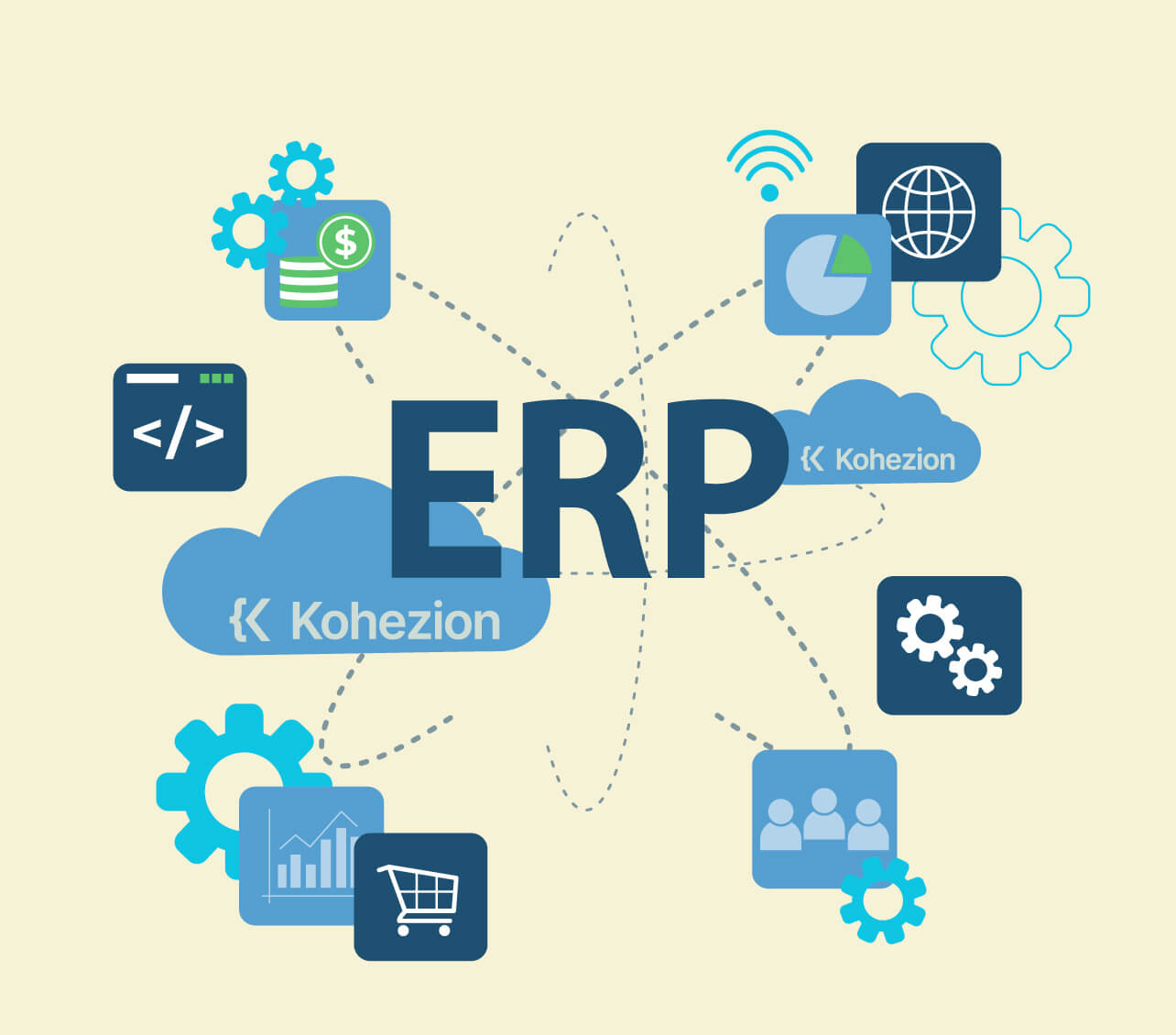
What are the most well-known ERP systems?
1. Microsoft Dynamics 365
Microsoft Dynamics 365 is a cloud-based ERP system that unifies both CRM and ERP functionalities to enhance customer service, sales, financials, and operations. Its key features include financial management, supply chain management, and customer relationship management. With Dynamics 365, salespeople can easily generate accurate quotes, access financial information, and adjust pricing and discounts with ease.
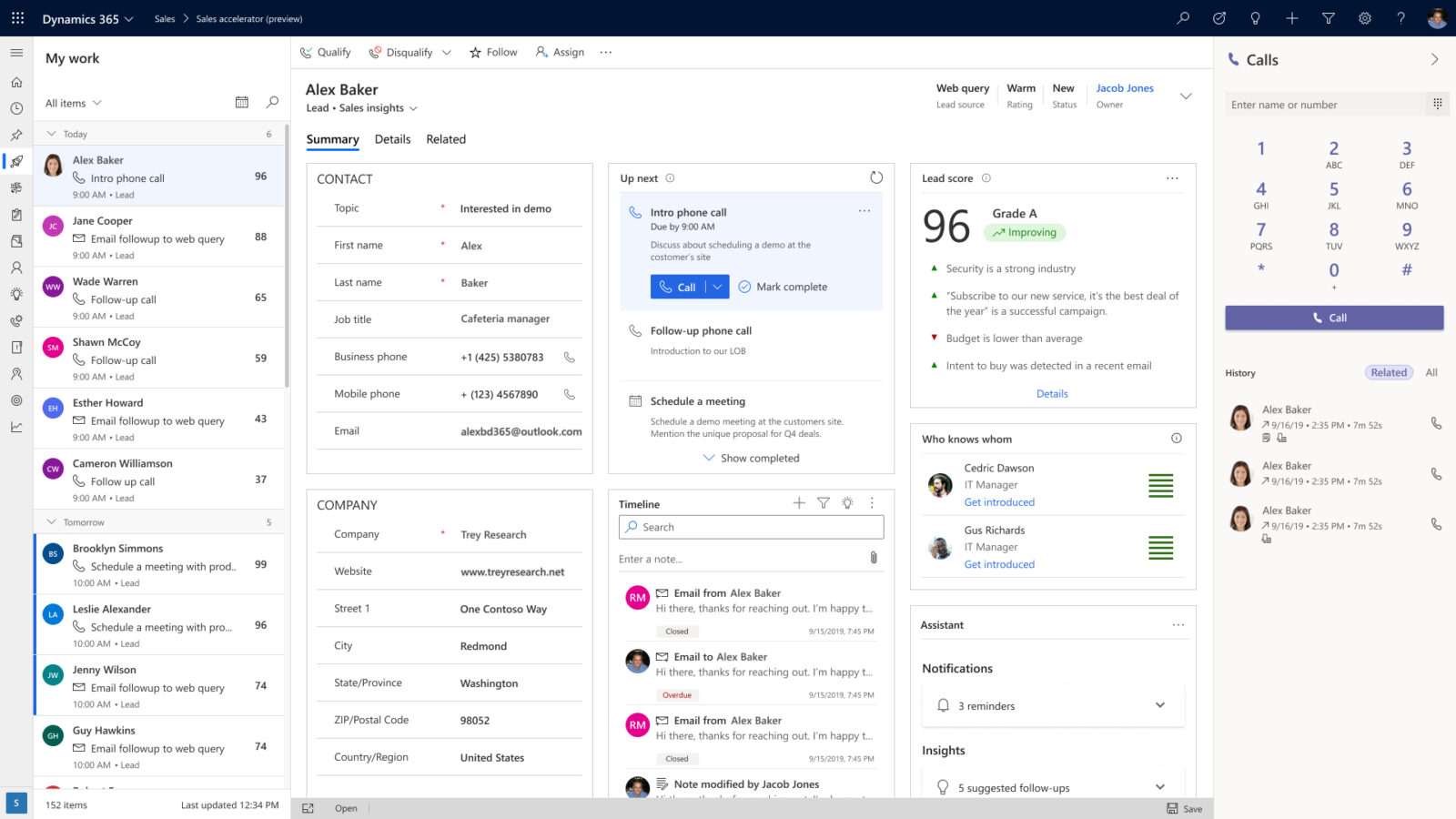
2. Oracle Enterprise Manager
Oracle Enterprise Manager is a popular ERP system designed to help organizations manage their business operations efficiently. It offers a suite of tools that automate, monitor, and manage various business processes, including finance, procurement, supply chain, and human resources. One of its key features is its ability to provide real-time insights into business operations, allowing decision-makers to make informed decisions quickly.
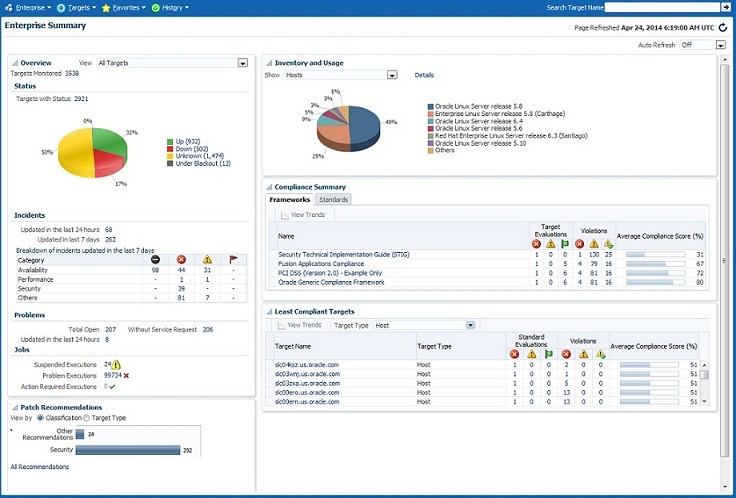
3. Oracle Customer Data Management
Oracle Customer Data Management is a cloud-based ERP system that offers automation, analytics, and management of financial and business processes. It is part of Oracle's Fusion Cloud ERP platform, which provides a comprehensive suite of tools to manage a business's operations. Oracle Customer Management includes robust CRM tools that allow businesses to manage all interactions with customers and potential customers. It tracks and stores customer data, including communication with sales representatives, purchase history, and service requests.
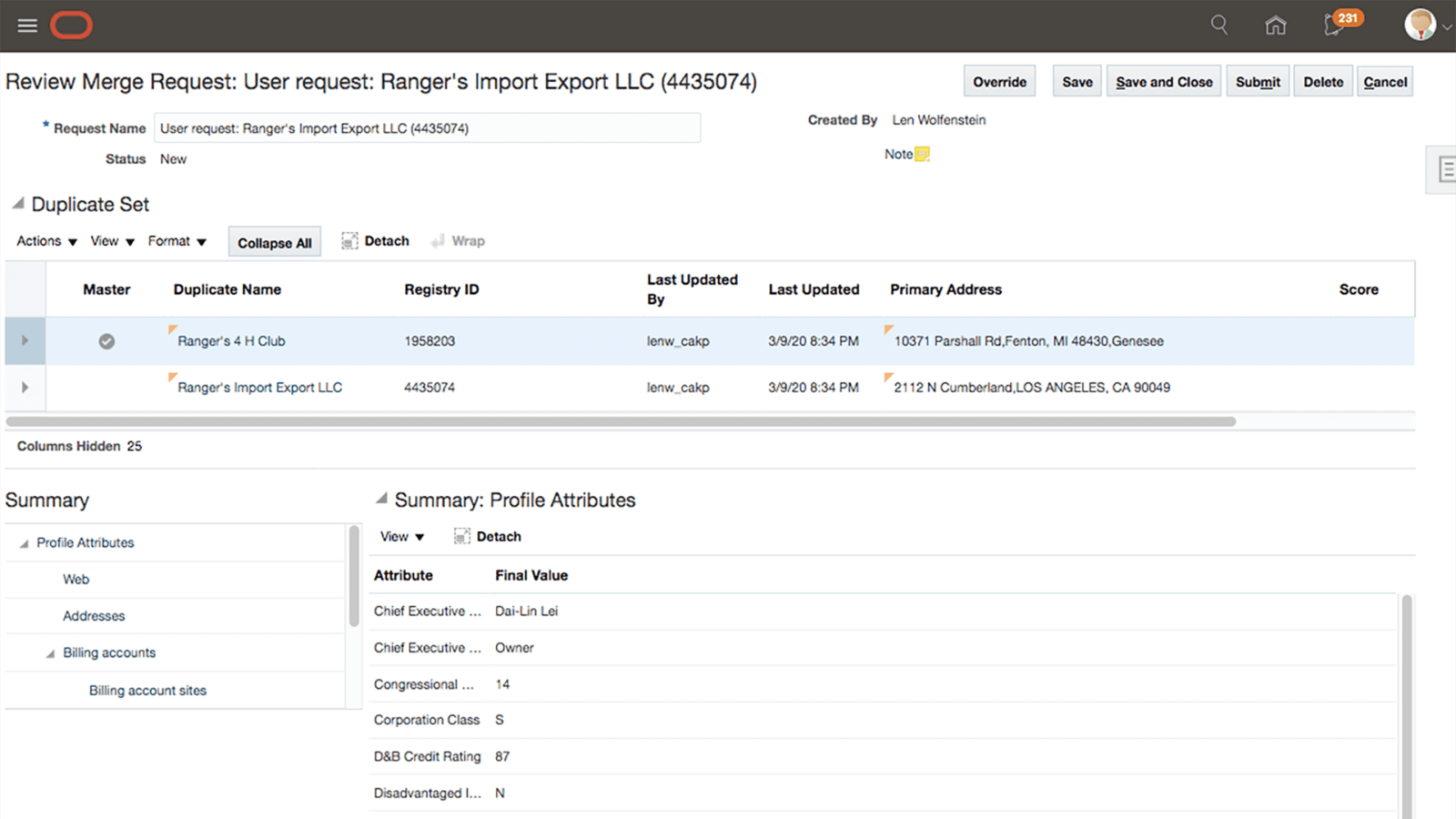
4. SAP BusinessObjects
SAP BusinessObjects is a suite of business intelligence tools that allow companies to analyze and visualize their data. It is a component of SAP's ERP system, providing users with real-time insights into their financial, sales, and production data. SAP BusinessObjects is commonly used in industries such as finance, manufacturing, and retail, where the ability to quickly analyze and make decisions based on data is crucial to success.
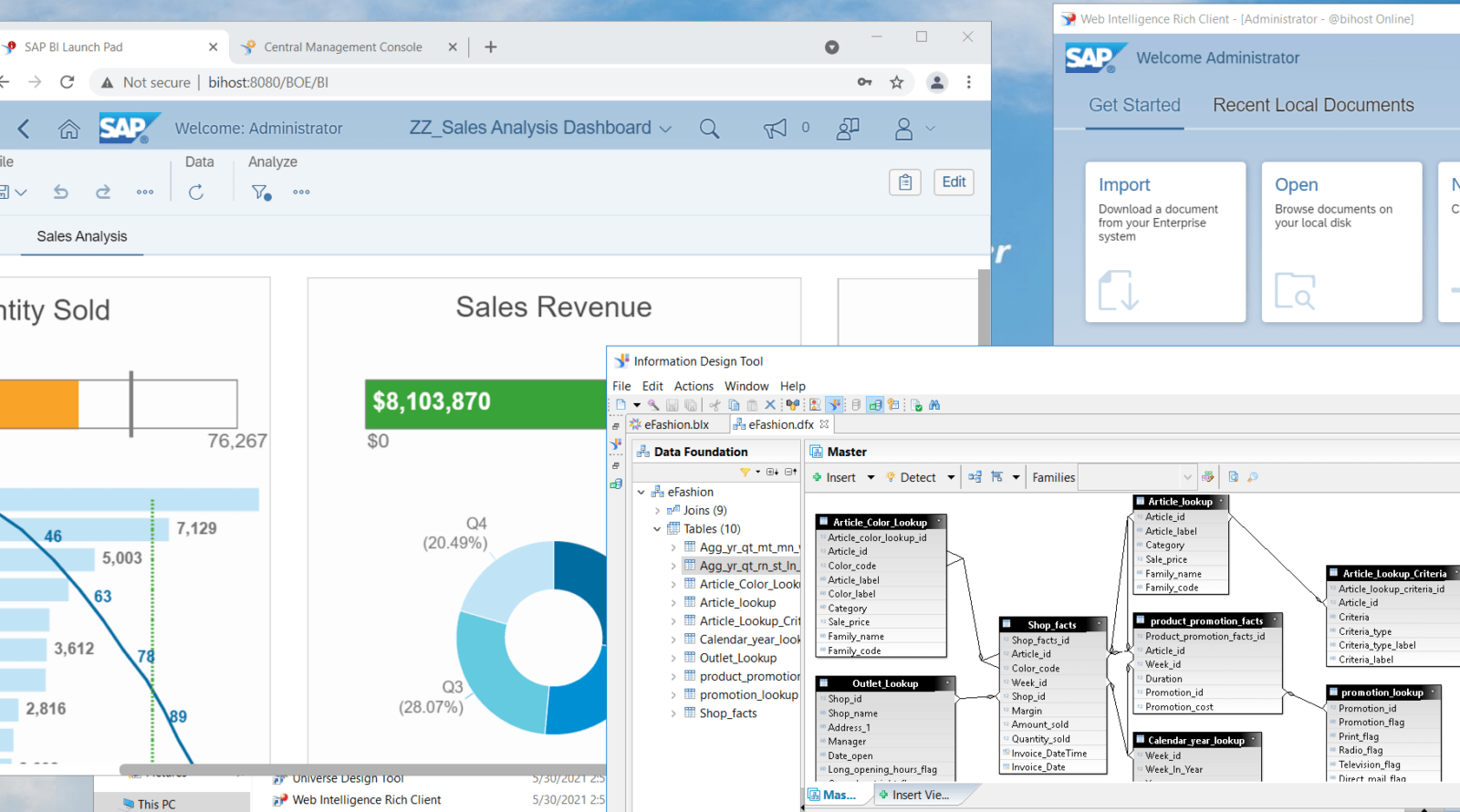
5. Zendesk
Zendesk is a customer relationship management (CRM) and enterprise resource planning (ERP) software that integrates both systems to provide a real-time view of customer data, financials, inventory, pricing, and more. This integration eliminates the need for manual updates and improves efficiency, profitability, and customer satisfaction. Zendesk CRM offers multichannel communication tools, ticket creation and tracking, self-service helpdesks, and customer data management.
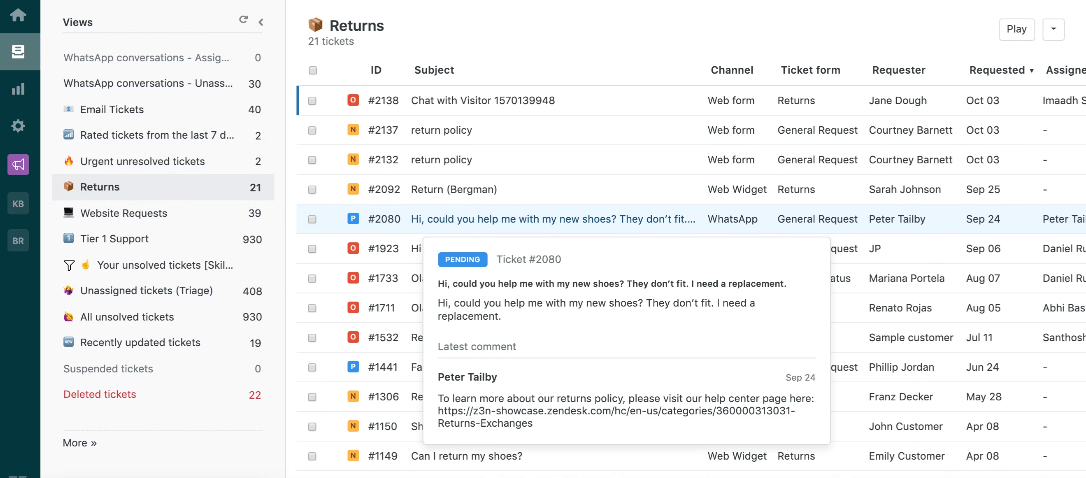
6. Low-code database systems, like Kohezion
Kohezion allows the interconnections of multiple applications, ensuring data efficiency in a single source of truth. With its flexible and customizable platform, various applications, such as project management, customer relationship management, task tracking, and document management can be interconnected seamlessly.
The integration enables the smooth flow of data between different applications , eliminating the need of manual data entry and synchronization. By centralizing data in one place, teams can access accurate and up-to-date information, reducing errors and enhancing collaboration.
The interconnection of applications in Kohezion promotes data consistency and integrity, as changes made in one application are automatically reflected in others. This ensures that all members have access to the most current and accurate information , promoting better decision-making and overall organizational efficiency.
We'll buid your first application for you. At no extra cost.
Let us build your first business application for free. Go from an idea to an application in under 2 weeks.
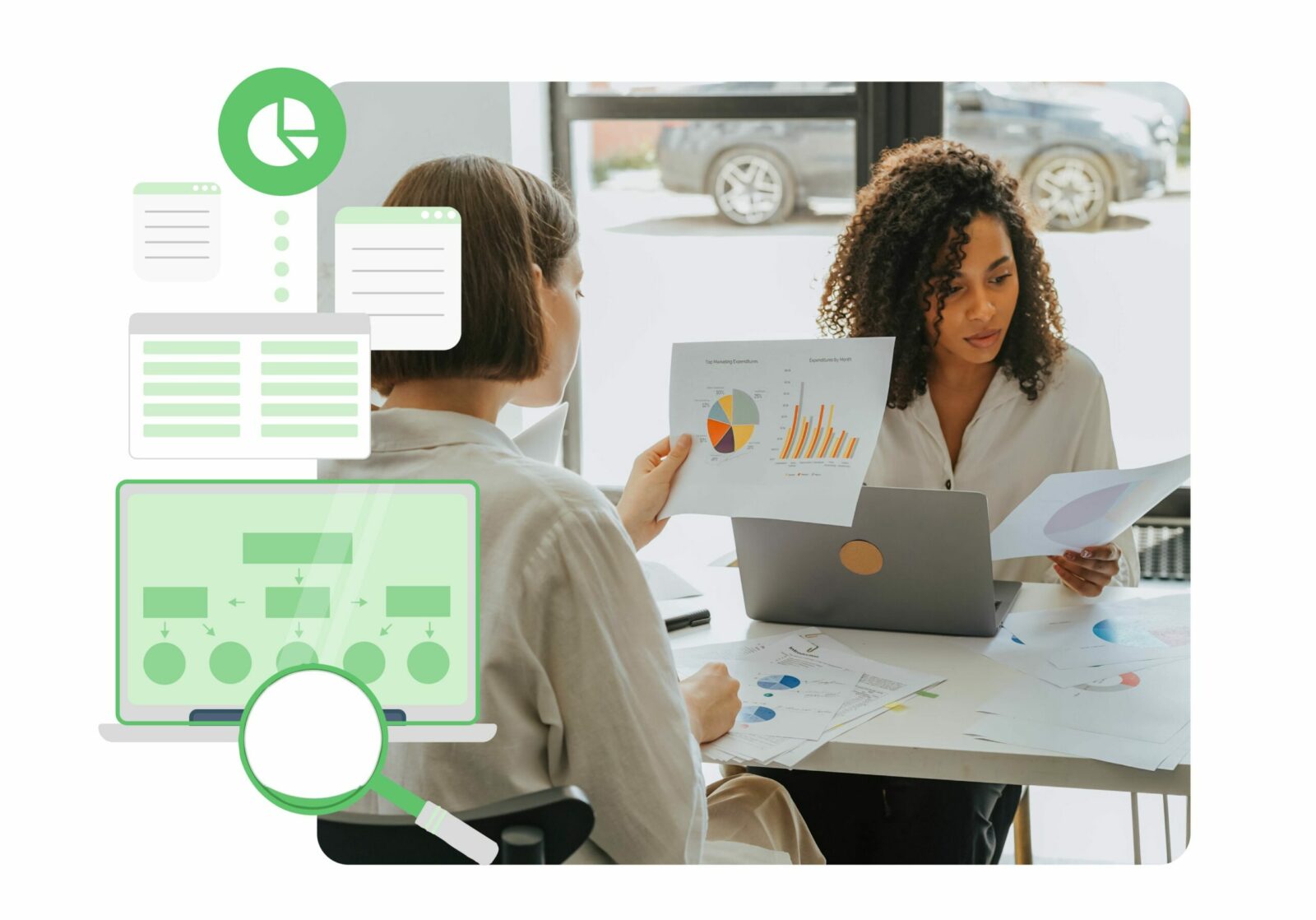
What is CRM?
Customer Relationship Management (CRM) helps businesses manage their customer interactions and relationships. It tracks and stores all customer data, including communication history, purchase history, and service requests. CRM systems help businesses keep track of their customers, automate marketing campaigns, identify business opportunities, manage the sales pipeline, streamline sales processes, automate customer service, and create accurate data reports. The primary focus of a CRM system is to ensure that customer needs are met in a timely and efficient manner, leading to increased customer satisfaction and profits.
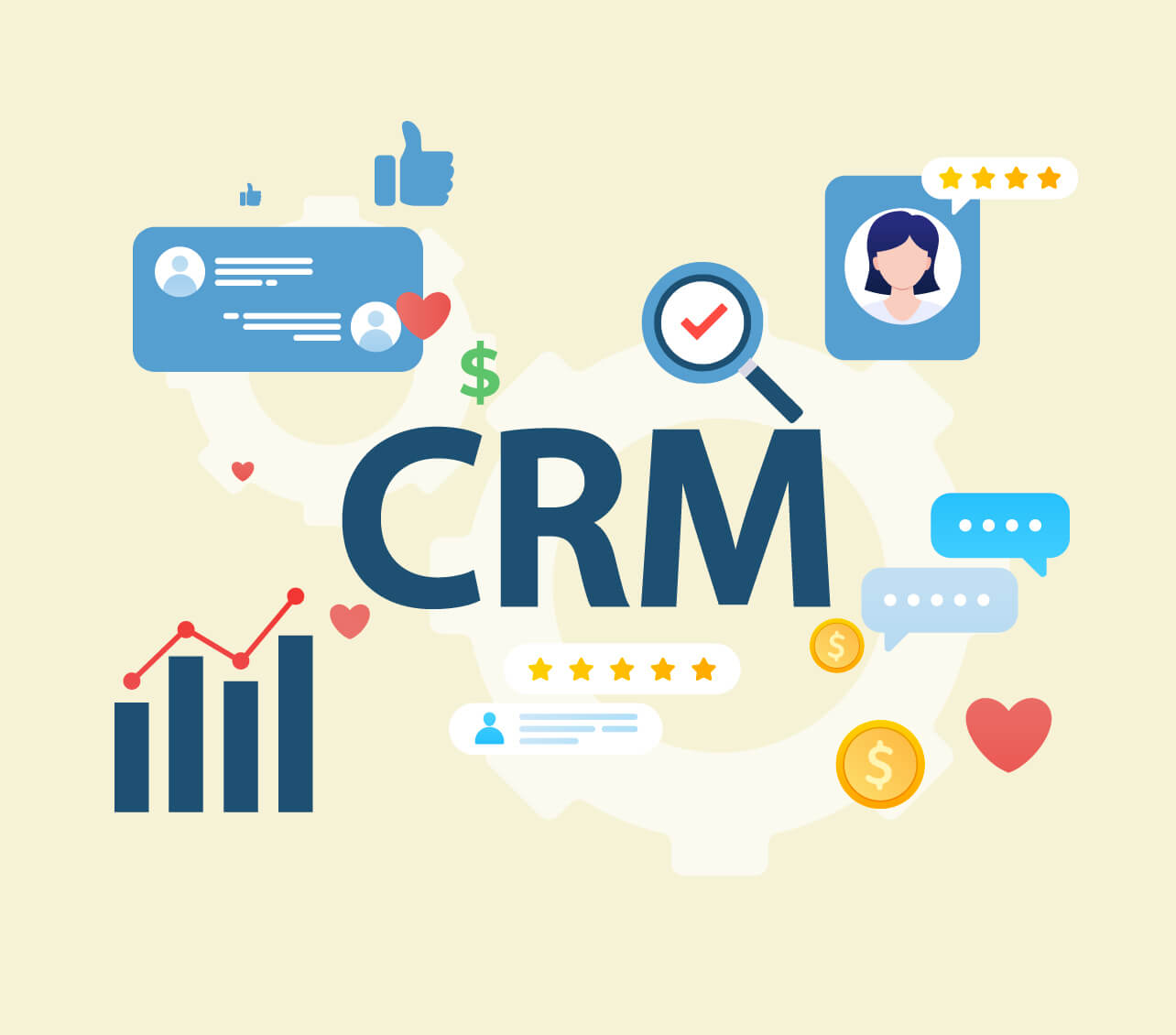
ERP vs CRM: How to choose which tool is a better fit for your organization?
1. ERP vs CRM: Functionality
ERP and CRM are two distinct systems designed to manage different business processes. While an ERP focuses on streamlining internal operations such as finance, supply chain, order management, and project planning, a CRM is tailored toward improving customer interactions and client retention. The primary users of CRM are sales, marketing, and customer support departments, while ERP users are focused on improving internal organizational functions.
The main features of an ERP revolve around workflow management, scheduling, invoicing, inventory, PO, etc. On the other hand, a CRM is more about contacts and lead management and nurturing, social media integrations, and marketing automation, among others. The key distinction between an ERP and a CRM is that the former is mainly for finance and operations, while the latter is for sales, marketing, and customer service.
ERP systems serve as a central database to integrate and facilitate automation and efficient resource allocation between company functions. In contrast, a CRM gives companies the tools and capabilities to build and maintain positive relationships with key stakeholders.
While ERP solutions may include some CRM functionality, the number of customer-related features included in a CRM is more extensive than what's featured in an ERP package. Therefore, if you only require CRM functionality and don't really need streamlined operations in other business areas such as finance, SCM, and distribution, a standalone CRM may be a better option. On the other hand, if you're looking to invest in systems that will benefit finances, warehouses, and other operations, an ERP might be a good option.
2. ERP vs CRM: Cost
The cost difference between ERP and CRM systems can be significant, and it's important to carefully weigh the potential financial impact before making a decision.
ERP systems designed for mid-sized businesses typically cost between $150,000 and $750,000, with costs increasing based on the number of users and features required. Implementation, customization, and ongoing maintenance fees can also add to the overall cost of an ERP system. On the other hand, CRM systems are more affordable, with costs ranging from $12 to $300 per user, per month.
However, customization and integration with other systems can increase the overall cost of a CRM system.
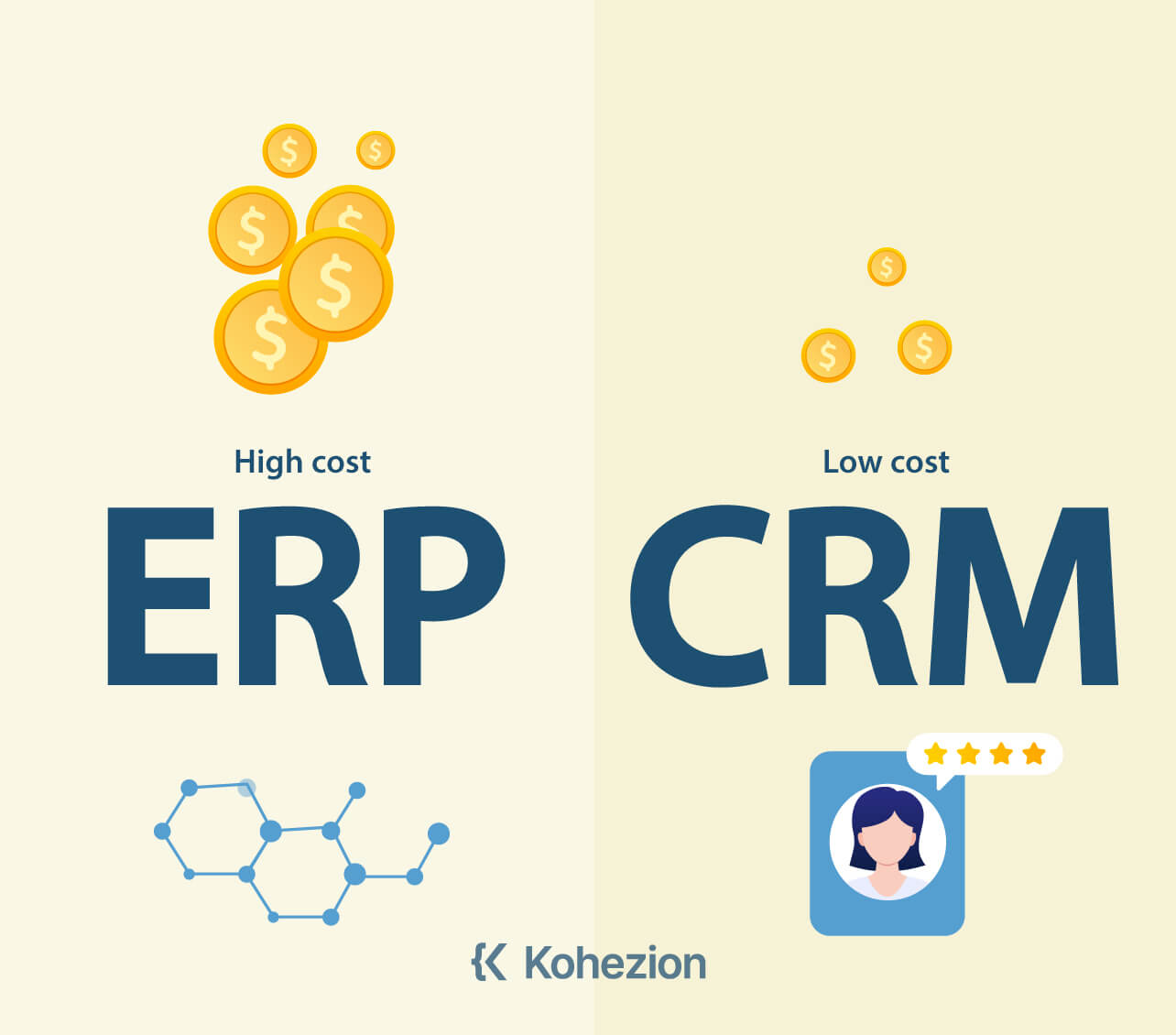
3. ERP vs CRM: Integration
ERP and CRM systems can be integrated to create a unified database that provides a real-time view of crucial data surrounding customers, financials, inventory, pricing, and more.
4. ERP vs CRM: Reporting
While both ERP and CRM systems generate data, analyze and create reports, there are distinct differences in their reporting capabilities.
CRMs are best for generating reports on customer behavior and interactions, while ERPs are best for generating reports on finance and operations.
CRMs are focused on sales, marketing, and customer service, and they gather data on customer behavior and interactions. This data can be used to create reports on customer profiles, sales pipelines, and marketing campaigns. For example, a CRM can show which ads get the most attention, or which sales reps perform the best.
ERPs are focused on finance and operations, and they gather data on inventory and supply chain management. This data can be used to create reports on operational insights, efficiency, and supply chain management. For example, an ERP can help businesses forecast demand and optimize production and inventory management.
5. ERP vs CRM: Security
ERP systems typically have more advanced security features due to their focus on financial data, while CRM systems prioritize customer-related data. Data breaches, unauthorized access, and phishing attacks can be mitigated by implementing strong password policies, regularly updating software, and providing employee training on cybersecurity best practices.
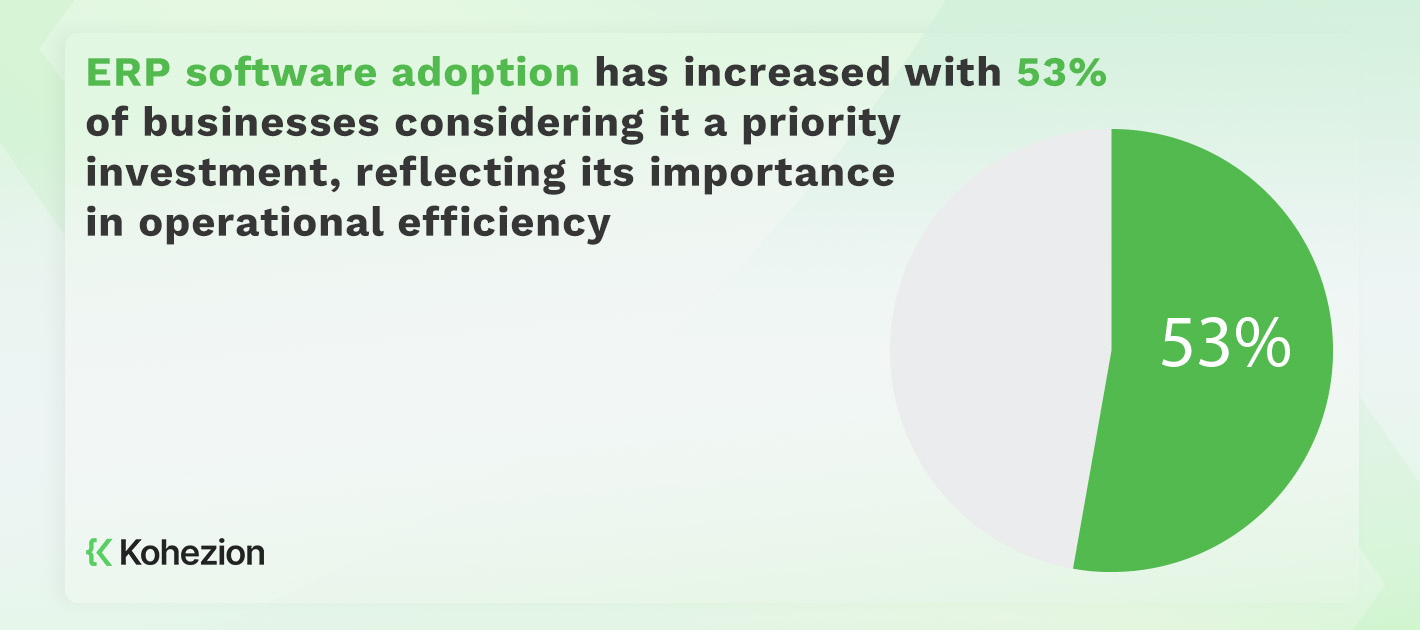
6. ERP vs CRM: Scalability
ERP systems are highly scalable and can easily expand to meet the growing needs of a business. They are ideal for businesses with complex financials, multiple departments, and a need for automation.
On the other hand, CRM systems are more flexible and customizable to meet the specific needs of a business. They work best for businesses that require frequent customer interactions, lead management, and marketing and sales processes.
7. ERP vs CRM: Customization
ERP systems can be customized to streamline business processes across departments and workflows. For example, a manufacturing company can customize an ERP system to manage production schedules, track inventory levels, and automate procurement processes. This level of customization can significantly improve productivity, reduce costs, and increase profitability.
CRM systems can be customized to manage customer interactions and improve sales and marketing efforts. For instance, a retail business can use a custom CRM system to track customer preferences, personalize marketing campaigns, and provide exceptional customer service. This level of customization can help build customer loyalty, increase sales, and improve the overall customer experience.
8. ERP vs CRM: Automation
ERP systems primarily automate business processes and workflows related to business operations and finance, such as supply chain management and financial reporting. On the other hand, CRM systems automate tasks related to sales, marketing, and customer services, such as customer relationship management and sales pipeline management.
9. ERP vs CRM: Data management
ERP and CRM systems are both designed as central data repositories, but an ERP system is primarily focused on managing a company's finances and resources by connecting its central database to all parts of business operations. In contrast, a CRM system helps manage sales, marketing, customer service, and customer experiences by gleaning actionable insights from detailed customer profiles and leaning on automation. It provides a database for all customer interactions and provides detailed insights that help support sales reps and refine sales pipelines.
10. ERP vs CRM: Workflows
ERP systems are designed to facilitate business processes across multiple workflows, providing a comprehensive solution for managing finances, warehouse operations, and other resources. For example, when a sale is made, an ERP system ensures that the order is fulfilled by tracking inventory levels and shipping schedules. This approach streamlines the entire order process from sale to invoicing and payment to fulfillment.
CRM systems provide advanced reporting and actionable insights from detailed customer profiles, enabling sales representatives to close deals more effectively. CRM systems also facilitate personalized interactions with existing and potential customers. The potential benefit of this approach is increased sales volume and improved customer satisfaction. However, the drawback is that CRM systems may lack the comprehensive solution for managing business operations found in ERP systems.
11. ERP vs CRM: Collaboration
ERP and CRM systems usually have some sort of a collaboration module (task notification, new project assignment, ad-hoc discussions etc) and can allow people to collaborate for streamlined front-end and back-office operations effectively and efficiently.
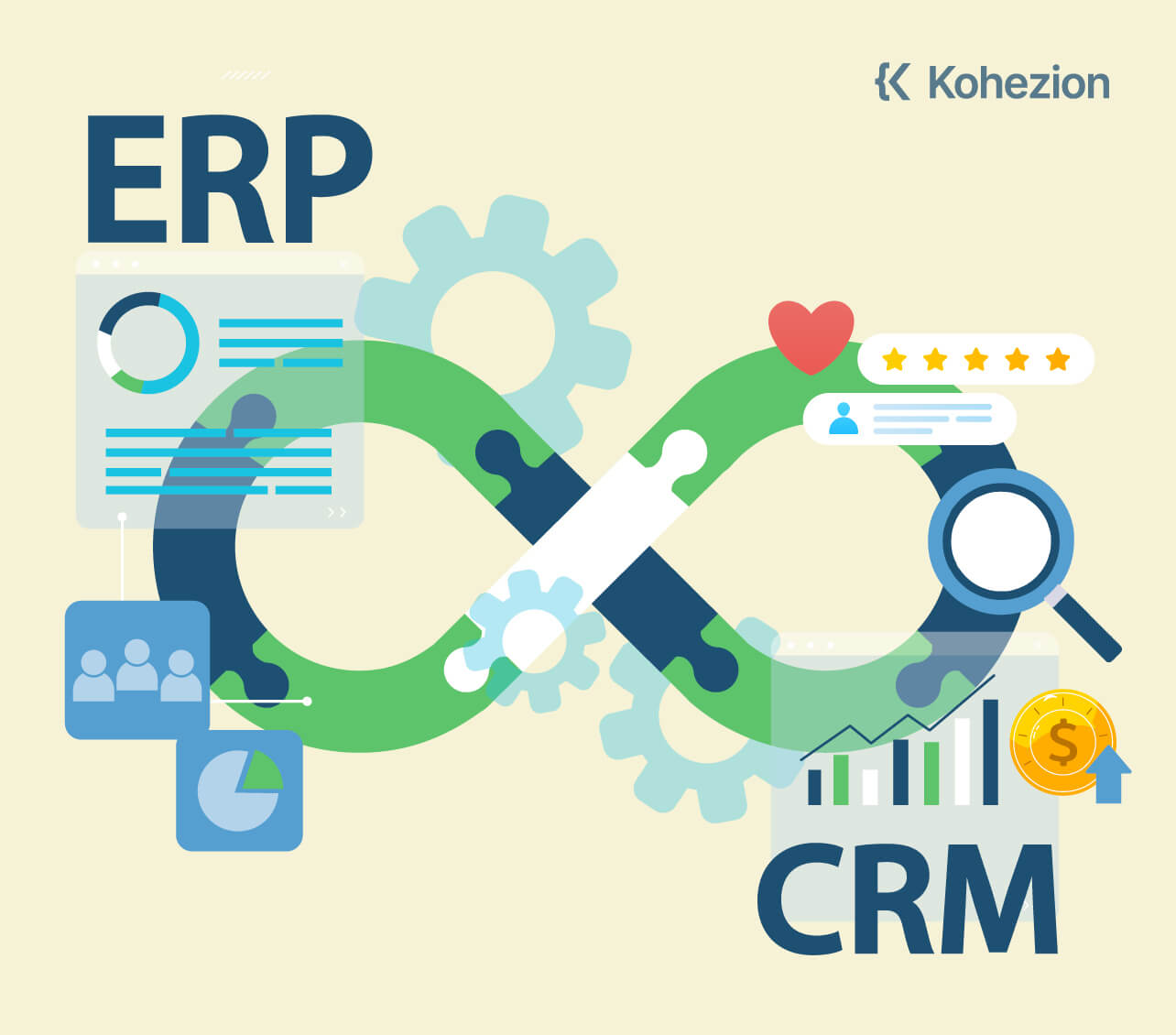
Verdict
ERP and CRM systems are both powerful tools for optimizing business processes and improving customer relationships. However, they serve different purposes and are suited for different types of organizations. An ERP system is ideal for companies that need to streamline their production, financial, and inventory management processes, improve their data security, reduce operation costs, improve communication and collaboration, increase productivity, etc. On the other hand, a CRM system is best for companies that need to locate, attract, evaluate, and engage leads while also building positive customer relationships that lead to repeat purchases.
In some cases, companies may need both systems and can integrate them to work together. For example, Cisco Systems successfully implemented both ERP and CRM systems and saw benefits such as improved supply chain management and increased customer satisfaction. Ultimately, the choice between ERP and CRM depends on the primary goals of the organization and the amount of investment they are willing to make.
|
ERP |
CRM |
|
Accounting |
Customer Service |
|
Procurement |
Client Management |
|
Project Management |
Sales Analytics |
|
Risk Management |
Marketing Automation |
|
Compliance |
Sales Force Automation |
|
Supply Chain Operations |
Campaign Management |
Start building with a free account
Frequently Asked Questions
ERP and CRM are two distinct software solutions used by businesses to manage their operations. ERP primarily focuses on managing financial data and operations, while CRM software is used for sales, marketing, and customer service. ERP helps manage back-office functions such as accounting, procurement, HR, and compliance, while CRM supports front-office functions such as marketing, sales, and service.
Advantages of ERP systems:
- A comprehensive solution that centralizes front- and back-office processes
- Facilitates business processes across many different workflows
- Improves efficiencies in business processes
- Reduces overheads and cuts costs by bringing in automation
Disadvantages of ERP systems:
- Higher investment cost
- The steep learning curve for employees
Advantages of CRM systems:
- More tailored solutions with extensive customer-related features
- Provides a repository of customers' data allowing stakeholders to improve customer relations and increase customer loyalty and profits
- Works to increase profits by producing higher sales volume
Disadvantages of CRM systems:
- Limited scope compared to ERP systems
- May require additional modules or integration with other systems for full functionality
CRM and ERP systems can be integrated to provide a unified view of customer interactions and streamline business processes. Integration can be achieved through technical integration rather than maintaining separate sets of data. Cloud-based SaaS solutions make integration fast, automated, and secure.
There are several popular CRM and ERP systems in use today. One of the most popular CRM systems is Salesforce, which offers a wide range of features such as lead management, sales forecasting, and customer service automation. HubSpot CRM is another popular option that offers a free version with basic features such as contact management and lead tracking. As for ERP systems, NetSuite is a widely used option that offers financial management, inventory management, and supply chain management features. SAP Business One is another popular ERP system that offers features such as accounting, sales, and purchasing management.
A CRM system is designed to manage and store customer information, helping businesses better understand and nurture their customer relationships. Key features include contact management, where marketers can create targeted campaigns and automate messages to reach the right people at the right time.
An ERP system provides businesses with a centralized database for all financial and operational data, improving data visibility and accuracy. This leads to better decision-making and increased efficiency, as well as reduced costs and improved customer service.
Common data points that can be integrated into a CRM system include product information, client and customer information, pricing, inventory and stock levels, payment data, and delivery information. Integrating these data points into a CRM system can help ensure accuracy and efficiency in sales activation through marketing channels, forecasting demand, reactive supply-chain processes, account management, product requirements, quality assurance details, and more.
Automation can significantly improve the efficiency of both ERP and CRM systems. By automating day-to-day tasks, team members can focus on more pressing issues within the organization. ERP and CRM systems use machine learning to automate simple and repetitive tasks such as data entry, data cleaning, and sending out automated replies, follow-ups, and reminders via text or email. Workflows can be set up for e-commerce to do quotes and invoicing tasks, as well as order fulfillment.
For support, it can help with simple complaint triage and route customers to the best agent. Automation also improves time management by eliminating the need to confer with multiple departments, request updated reports and information, and wait for responses.
Implementing both CRM and ERP systems can help a company increase its profitability by improving efficiencies in business processes, reducing overheads and cutting costs, and increasing sales volume and customer loyalty. An ERP system focuses on streamlining operations and reducing costs by bringing in automation, while a CRM system works to increase profits by producing higher sales volume and improving customer interactions. By combining the two systems, a company can maximize business growth by driving sales and reducing overall costs.
Most companies will eventually need both a CRM and an ERP system to manage customer relationships and streamline business operations. While the choice of which system to implement first depends on the business model, integrating both systems can improve efficiency and profitability. For example, a CPQ system requires data from both ERP and CRM systems to provide cost estimates for custom orders. Integrating the two systems can provide a complete suite of tools to manage financials, inventory, and customer data.
SAP is a company that sells both CRM and ERP products. Businesses can use either one SAP system or integrate their ERP and CRM software. SAP offers both CRM and ERP products, which can be used together or separately depending on a company's needs.
ERP systems offer a range of features that can benefit companies by streamlining operations and centralizing information. These systems typically include tools for finance, HR, inventory management, and distribution, and can be customized to meet the unique needs of a business.
